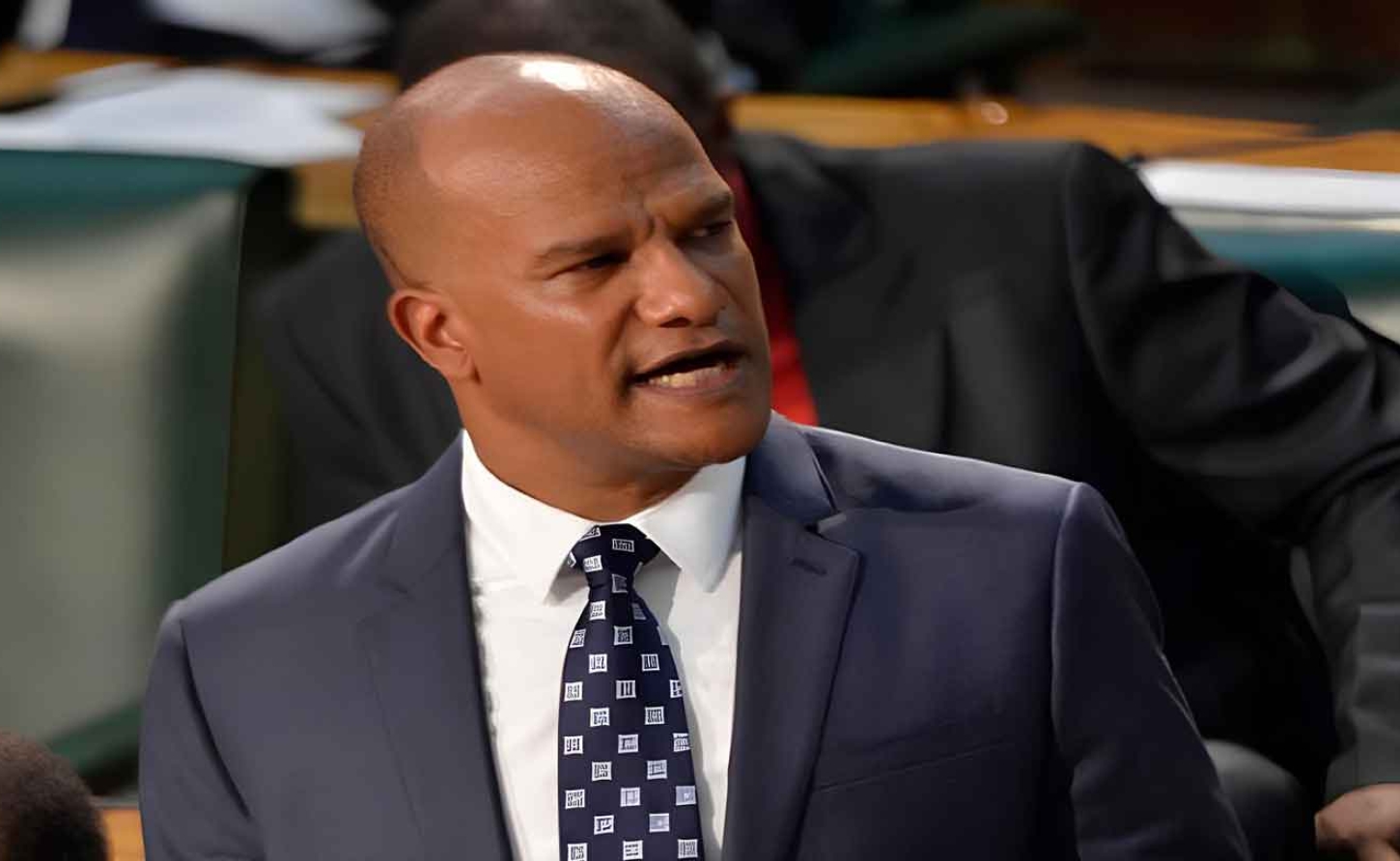JAMAICA | Blood Money Wars: Peter Bunting Condemns Lottery Scamming Attack on Police Family

KINGSTON, Jamaica, August 10, 2025 - The numbers tell only part of the story. Latoya Crystal Stephenson, 36 years old. Zamir Nathaniel Morgan, just 5. Detective Constable Michael Morgan, a father fighting for his life alongside his son in a hospital bed.
But behind these stark statistics lies a more disturbing truth about what Jamaica has become—a society where tragedy transforms into entertainment, where the most intimate moments of human suffering become public spectacle.
The brutal attack in St. James that claimed Stephenson's life and left Detective Constable Morgan and his young son clinging to life represents more than another entry in Jamaica's grim crime ledger. It exposes the dual crisis consuming the nation: an epidemic of violence that has made police families targets in their own communities, and a moral decay that turns victims into viral content.
Opposition Shadow Minister of National Security Peter Bunting's condemnation struck at both wounds with the authority of experience. As a former Minister of National Security, Bunting speaks from intimate knowledge of Jamaica's security challenges, understanding that behind every crime statistic lies a shattered family, a community traumatized, and a society that seems increasingly numb to its own brutalization.
"This cold-blooded assault on a young family is yet another tragic reminder of the unrelenting violence plaguing our society," Bunting declared, his words heavy with the accumulated grief of too many similar statements made during his tenure and since.
But it was his secondary observation that perhaps cut deepest—the "disturbing trend of circulating photographs and videos of victims in the immediate aftermath of violent crimes." In a country where WhatsApp groups and social media feeds routinely feature graphic images of the deceased, Bunting dared to name what many refuse to acknowledge: Jamaica has developed an appetite for "violence voyeurism" that strips victims of dignity even in death.
Detective Constable Morgan's role with the Lottery Scamming Task Force adds another layer of deadly significance to this tragedy.
In St. James and its environs, lottery scamming has evolved from a financial crime into a blood-soaked enterprise that has claimed numerous lives—not just rival scammers, but family members of those who dare oppose the criminal networks.
Critics have documented how this particular form of organized crime has transformed entire communities into battlegrounds where opposition to scamming operations can be a death sentence.
Here was a man whose very job description made him a target. His work dismantling the criminal networks that have made Jamaica synonymous with telephone fraud wasn't just about protecting distant victims—it was about confronting an industry that has militarized itself, turning St. James parishes into territories where scam bosses rule through terror.
The attack on his family represents the brutal calculus of these organizations: to deter opposition, you don't just threaten the officer—you destroy their world.
This context makes the attack even more chilling because it follows an established pattern. When lottery scamming operations face pressure, the response isn't retreat—it's escalation. Family members become strategic targets, chosen specifically to send messages that reverberate through law enforcement ranks and community advocacy groups alike.
This phenomenon of violence voyeurism represents something more sinister than mere morbid curiosity. It reflects a society where empathy has been eroded by overexposure to violence, where the sacred boundary between public interest and private grief has collapsed entirely.
When images of Stephenson's final moments inevitably began circulating—as they always do—they carried with them not just the immediate trauma of her death, but the ongoing violation of treating human suffering as entertainment.
The broader implications extend far beyond this single incident. When law enforcement families become targets in the lottery scamming wars, the entire foundation of civil society begins to crumble. Officers cannot effectively serve communities when they must constantly fear for their children's safety.
Citizens lose faith in a system that cannot protect even those sworn to protect them. The criminals, emboldened by successful attacks on police families, grow bolder in their operations.
Bunting's call for "urgent and effective action" carries particular weight given his former ministerial role. His recognition that condemnation without action is merely performance reflects lessons learned from years grappling with Jamaica's security challenges.
The Opposition's position reflects a growing understanding that Jamaica's crime crisis, particularly the lottery scamming epidemic in western parishes, demands solutions that go beyond increased patrols or tougher sentencing. It requires a fundamental shift in how society values human life and dignity.
The digital dimension of this crisis cannot be overlooked. Social media platforms have become vectors for retraumatization, allowing graphic content to spread faster than official information or support services can respond.
Each shared image represents not just a violation of the victim's dignity, but an assault on community healing. When death becomes clickbait, society loses something essential about its humanity.
As Detective Constable Morgan and his son fight for their lives, their struggle represents more than a family's battle against violence—it symbolizes Jamaica's own fight for its soul. In St. James, where lottery scamming has turned neighbors into enemies and families into casualties of war, this latest tragedy serves as a stark reminder of how far the parish has fallen.
The question is whether the nation will choose the difficult path of confronting the lottery scamming networks that have militarized crime in western Jamaica, or continue down the easier road of voyeuristic consumption and hollow condemnation.
The choice, ultimately, lies not with politicians but with every citizen who decides whether to share that next graphic image or choose, instead, to preserve someone's final dignity.
-30-
